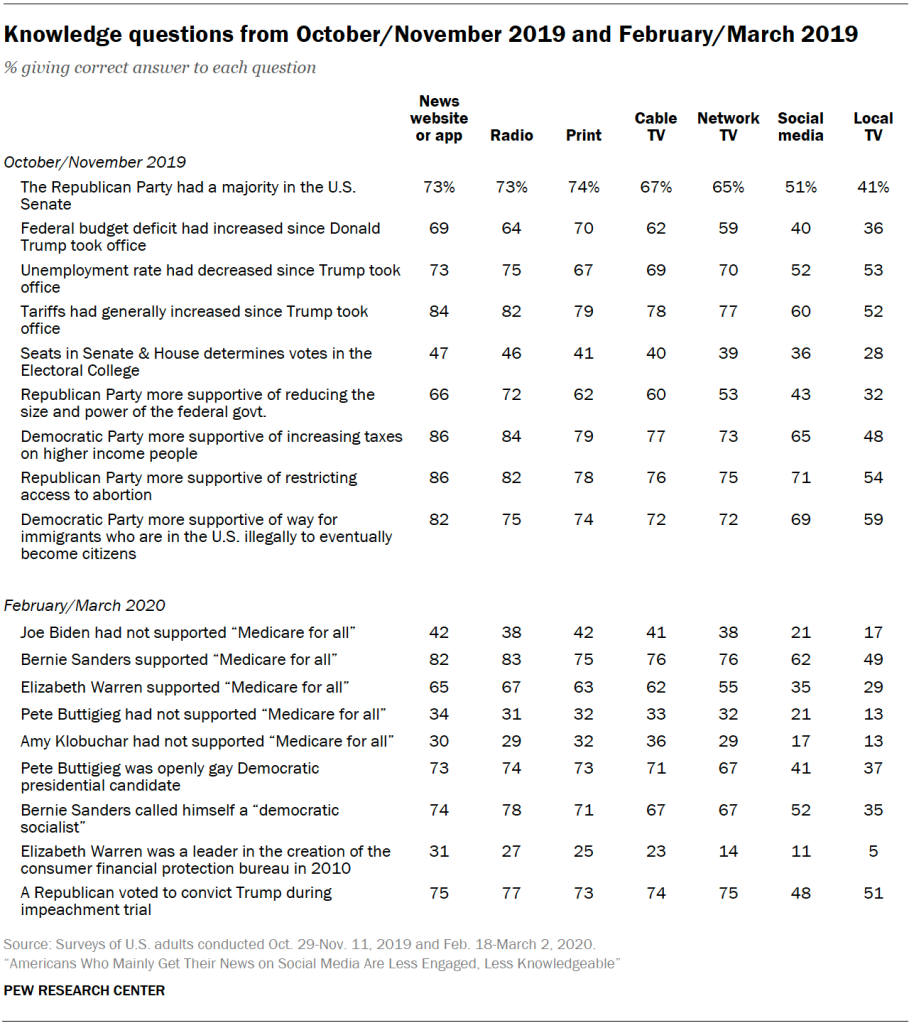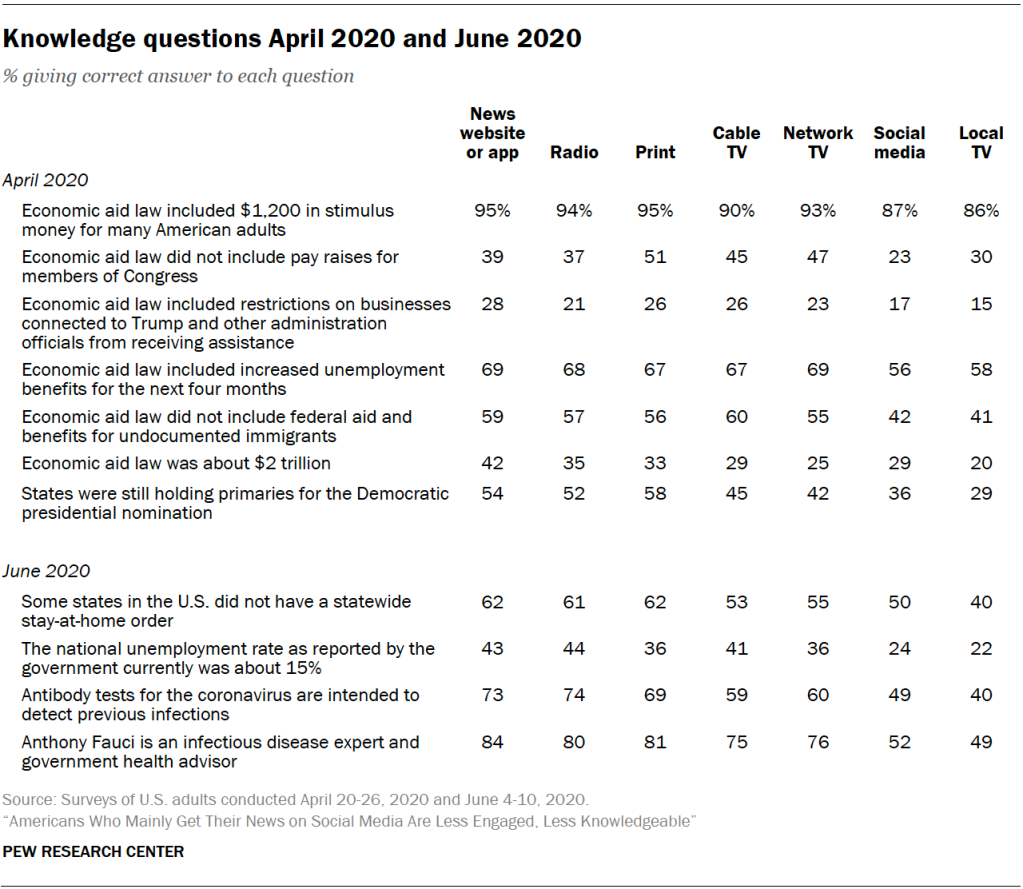The average percentage who gave the correct responses to 29 fact-based questions on American News Pathways surveys between November 2019 and June 2020 is calculated by taking the sum of the percentage of respondents that gave the correct answer to each of the 29 questions and then dividing by the total number of questions (29). The results can be interpreted as the average share of the news consumer groups (e.g., those who rely most on social media, local TV, etc., for political news) who got the question right for these 29 questions.
The average was drawn from the following 29 survey questions:
- The Republican Party then had a majority in the U.S. Senate (October/November 2019)
- The U.S. federal budget deficit had increased since Donald Trump took office (October/November 2019)
- The unemployment rate in the U.S. had decreased since Donald Trump took office (October/November 2019)
- Tariffs in the U.S. have generally increased since Donald Trump took office (October/November 2019)
- A state’s number of seats in the U.S. Senate and U.S. House of Representatives determines the number of votes it has in the Electoral College (October/November 2019)
- The Republican Party is more supportive of reducing the size and power of the federal government (October/November 2019)
- The Democratic Party is more supportive of increasing taxes on higher income people (October/November 2019)
- The Republican Party is more supportive of restricting access to abortion
(October/November 2019) - Democratic Party is more supportive of creating a way for immigrants who are in the U.S. illegally to eventually become citizens (October/November 2019)
- Joe Biden had not voiced support for “Medicare for all” (February/March 2020)
- Bernie Sanders had voiced support for “Medicare for all” (February/March 2020)
- Elizabeth Warren had voiced support for “Medicare for all” (February/March 2020)
- Pete Buttigieg had not voiced support for “Medicare for all” (February/March 2020)
- Amy Klobuchar had not voiced support for “Medicare for all” (February/March 2020)
- Pete Buttigieg was the Democratic presidential candidate who is openly gay or lesbian (February/March 2020)
- Bernie Sanders was the Democratic presidential candidate who called themselves a “democratic socialist” (February/March 2020)
- Elizabeth Warren was the Democratic presidential candidate who was a leader in the creation of the Consumer Financial Protection Bureau in 2010 (February/March 2020)
- At least one Republican (Mitt Romney) voted to convict Donald Trump during the impeachment trial in the U.S. Senate (February/March 2020)
- The economic aid law passed by Congress in March and signed by Donald Trump included $1,200 in stimulus money for many American adults (April 2020)
- The economic aid law passed by Congress in March and signed by Donald Trump did not include pay raises for members of Congress (April 2020)
- The economic aid law passed by Congress in March and signed by Donald Trump included restrictions on businesses connected to Trump and other administration officials from receiving assistance (April 2020)
- The economic aid law passed by Congress in March and signed by Donald Trump included increased unemployment benefits for the next four months (April 2020)
- The economic aid law passed by Congress in March and signed by Donald Trump did not include federal aid and benefits for undocumented immigrants (April 2020)
- The amount of economic aid in the bill passed by Congress and Donald Trump in March was about $2 trillion (April 2020)
- States were still holding primaries for the Democratic presidential nomination (April 2020)
- Some states in the U.S. did not have a statewide stay-at-home order (June 2020)
- The national unemployment rate as reported by the government was then about 15% (June 2020)
- Antibody tests for the coronavirus are intended to detect previous infections (June 2020)
- Anthony Fauci is an infectious disease expert and government health advisor (June 2020)






